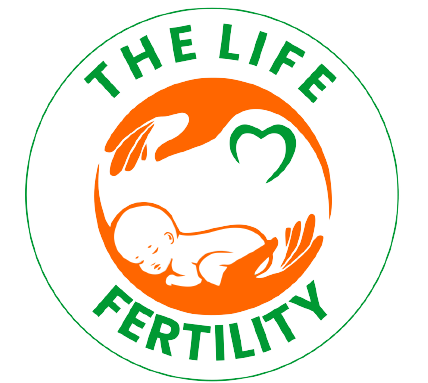Introduction
The journey to parenthood can be complex, and for many, the path to natural conception is influenced significantly by weight. Understanding the essential connection between weight management and fertility is crucial. More individuals than ever face fertility challenges, and often, a key factor lies in maintaining a healthy weight. This isn’t about achieving an ideal body image; it’s about optimizing your body’s natural ability to conceive. This article aims to provide clear, actionable insights into how weight management and fertility are intrinsically linked. We’ll explore the science behind it, offering practical steps to improve your chances of pregnancy. If you’re looking to understand how your weight impacts your reproductive health, you’re in the right place.
How Weight Affects Fertility
Your weight plays a direct role in your hormonal balance, which in turn, impacts your fertility. When we talk about weight management and fertility, we’re addressing how excess or insufficient body fat can disrupt the delicate hormonal system necessary for ovulation and regular menstrual cycles. Excess weight, particularly, can lead to increased estrogen production, which may interfere with ovulation. This imbalance can also contribute to conditions like Polycystic Ovary Syndrome (PCOS), a common cause of infertility. PCOS, often linked to insulin resistance, further complicates the relationship between weight management and fertility. On the other hand, being significantly underweight can also halt ovulation, as the body lacks the necessary resources to support a pregnancy. Essentially, your body’s ability to regulate reproductive hormones is closely tied to your weight. Therefore, maintaining a healthy weight is not just about physical appearance; it’s about creating a conducive environment for natural conception.
Weight Management and Ovulation
Effective weight management and fertility strategies often focus on optimizing ovulation. Ovulation, the release of an egg, is a critical step in natural conception. When you maintain a healthy weight, you’re more likely to have regular ovulation cycles. This is because body fat influences estrogen production; too much or too little can disrupt this process. Even modest weight loss, as little as 5-10% of your body weight, can significantly improve ovulation in those who are overweight or obese. This underscores the power of weight management and fertility interventions. The relationship between body fat and estrogen is complex, but the core principle is simple: balanced body fat supports balanced hormone levels, leading to more predictable ovulation. Therefore, achieving and maintaining a healthy weight is a powerful tool in enhancing your fertility.
The Impact on Male Fertility
The connection between weight management and fertility isn’t exclusive to women. Men’s weight also plays a significant role in their reproductive health. Excess weight in men can lead to hormonal imbalances, specifically a decrease in testosterone and an increase in estrogen. These changes can negatively impact sperm production, reducing both sperm count and motility. Obesity can also contribute to erectile dysfunction, further complicating the ability to conceive. Maintaining a healthy weight is therefore crucial for male fertility. When we talk about weight management and fertility, we are also talking about the importance of male reproductive health. Just as with women, even small changes in weight can have a positive effect on male fertility. Addressing weight issues can be a key step in improving overall reproductive health for men.
Practical Steps for Weight Management and Improved Fertility
Improving your chances of conception through weight management and fertility involves several practical steps. First, adopt healthy eating habits. Focus on a balanced diet rich in fruits, vegetables, lean proteins, and whole grains. Limit processed foods, sugary drinks, and excessive saturated fats. Regular physical activity is also essential. Aim for at least 150 minutes of moderate-intensity exercise per week. This can include brisk walking, cycling, or swimming.
Consulting with healthcare professionals is crucial. A doctor or nutritionist can provide personalized advice based on your individual needs. They can also help you understand your Body Mass Index (BMI) and how it relates to your fertility. A BMI between 18.5 and 24.9 is generally considered healthy for fertility. However, individual circumstances vary.
Preconception health is vital. This involves optimizing your overall health before trying to conceive. This includes managing any existing medical conditions and ensuring you are taking necessary vitamins and minerals. Remember, small changes in your lifestyle can make a significant difference. By focusing on weight management and fertility, you’re taking a proactive step toward achieving your goal of natural conception.
Dietary Recommendations
When focusing on weight management and fertility, dietary choices are paramount. Certain foods can enhance fertility, while others may hinder it. Incorporate a variety of fruits and vegetables, which provide essential vitamins and antioxidants. Whole grains offer fiber and nutrients that support hormonal balance. Lean proteins, such as chicken, fish, and legumes, are crucial for cell growth and repair. Healthy fats, found in avocados, nuts, and olive oil, are vital for hormone production.
Conversely, limit processed foods, sugary drinks, and excessive caffeine. These can disrupt hormonal balance and negatively impact fertility. Trans fats, often found in fried and processed foods, should be avoided altogether. A balanced diet not only supports weight management and fertility but also provides the necessary nutrients for a healthy pregnancy. Focus on foods rich in folate, iron, and omega-3 fatty acids. These nutrients play a vital role in reproductive health. Ultimately, your diet should be a cornerstone of your efforts to improve fertility.
When to Seek Professional Help
Knowing when to seek professional help is essential in your journey of weight management and fertility. If you’ve been trying to conceive for six months to a year without success, it’s time to consult a doctor. This is especially important if you have irregular menstrual cycles, known PCOS, or other health conditions that may affect fertility. A fertility specialist can conduct a comprehensive assessment to identify any underlying issues.
Fertility treatments and assisted reproductive technology (ART) may be options if natural conception is challenging. However, even when considering these interventions, maintaining a healthy weight remains crucial. A comprehensive fertility assessment will help determine the best course of action. Remember, seeking professional guidance doesn’t mean you’ve failed; it’s a proactive step toward achieving your goal of parenthood, and optimizing weight management and fertility is a significant part of that journey.
Conclusion
The connection between weight management and fertility is undeniable. Maintaining a healthy weight is a significant factor in achieving natural conception. By understanding how weight influences hormonal balance, ovulation, and overall reproductive health, you can take proactive steps to improve your chances of pregnancy. Remember, small lifestyle changes can make a big difference. Whether it’s adopting a balanced diet, engaging in regular exercise, or seeking professional guidance, you are taking control of your fertility journey. Keep hope alive, and remember that you are not alone.
FAQ
How does weight directly impact fertility?
Weight, especially excess weight, can disrupt hormonal balance, leading to irregular ovulation and menstrual cycles, which are crucial for natural conception. Therefore, optimal weight management and fertility are closely linked.
Can losing weight really improve my chances of getting pregnant?
Yes, even modest weight loss can significantly improve ovulation and increase the chances of natural conception. This highlights the importance of weight management and fertility.
What is a healthy BMI for fertility?
A BMI between 18.5 and 24.9 is generally considered healthy for fertility. However, it’s essential to consult a healthcare professional for personalized advice on weight management and fertility.
Does being underweight affect fertility?
Yes, being underweight can also disrupt hormonal balance and ovulation, impacting fertility negatively. Achieving a healthy weight through proper weight management and fertility strategies is vital.
How does male weight impact fertility?
Excess weight in men can affect sperm count, motility, and hormonal balance, impacting their fertility. Therefore, weight management and fertility is important for males as well.
What are the best foods to eat for fertility?
A balanced diet rich in fruits, vegetables, whole grains, lean proteins, and healthy fats is essential. Consider foods high in folate, iron, and omega-3 fatty acids for optimal weight management and fertility.



